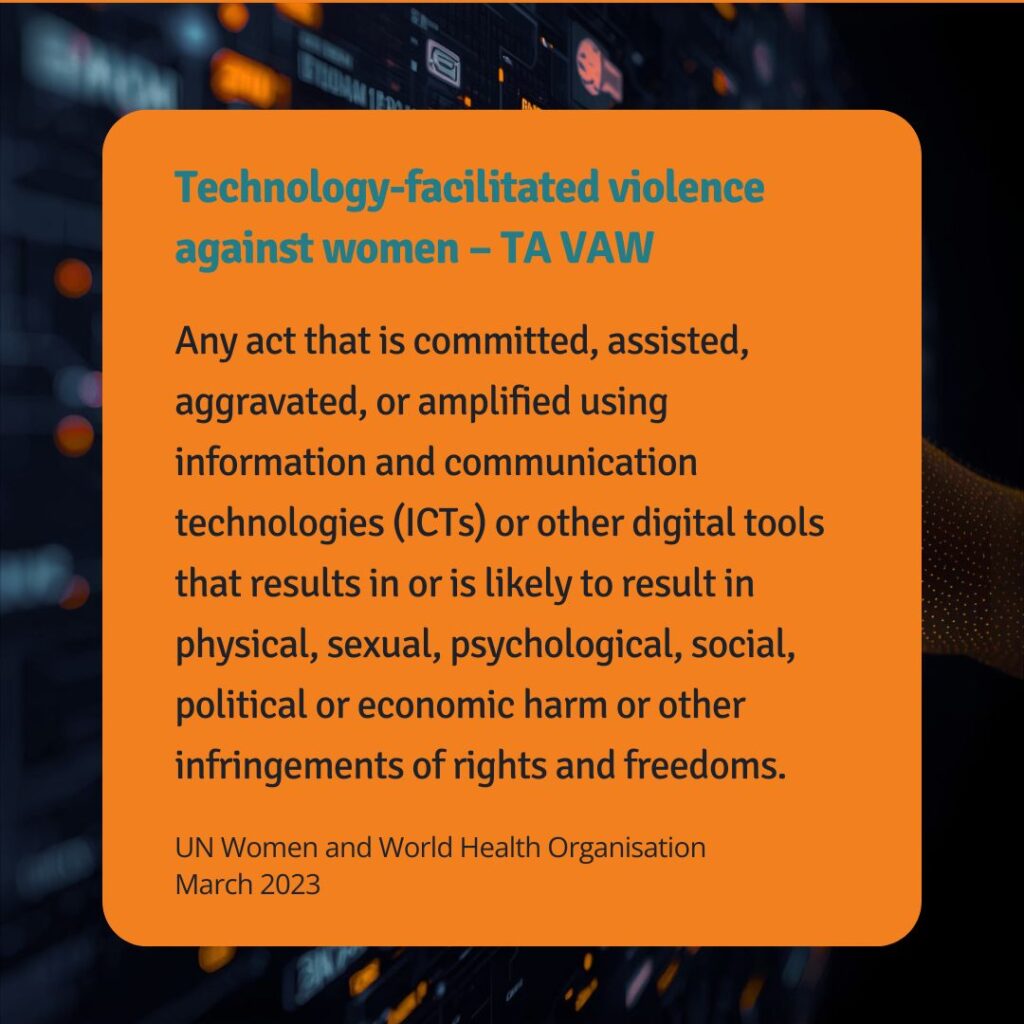
23 Sep Why we need equitable masculinities to create inclusive and safe digital media
The 2025 Summit of the HeForShe initiative led by UN Women brought high-level leaders together to discuss building equitable masculinities and safe digital spaces. Below, Rod Molina, global coordinator of the Global Media Monitoring Project (GMMP), reflects on the need to engage men and boys as part of our efforts to create inclusive, equal, and safe spaces online.
The HeForShe Summit aligns with the upcoming 16 Days of Activism Against Gender-Based Violence campaign that will call to “end digital violence against women and girls.” This call is a response to the rise of technologically assisted violence against women (TA VAW).
Online violence can take the form of a series of harmful behaviors that include bullying, intimidation, sexual violence, harassment, stalking, coercion, non-consensual sharing of images, and impersonation, among other actions.
Gender and sexual identity have been identified as risk factors in this violent phenomenon. While men can be and are victims of this type of inter-personal violence, international evidence shows that women, girls, and gender-diverse people tend to be more at risk.

As technological mediation of our social interactions increases so does the appearance of online gender-based violence.
While the focus is on violence happening in a virtual space, studies have nevertheless shown that there is a connection between online and offline psychological, emotional, and physical violence. As with any form of violence, the psychological and social effects are serious and can be devastating to the victim and their interpersonal relationships.
According to a report by UN Women (2023) on the issue, reporting on the prevalence of this global problem oscillates between 16 to 58 percent, depending on the study and the way the problem it is measured.
As shown in the publication Mapping policy responses to technology-facilitated gender-based violence in G7 countries from the Organisation for Economic Co-operation and Development (OECD), regional, international, and national communities and institutions find themselves building common frameworks to understand and measure this phenomenon on a global scale, as the dynamics of the problem can surpass national boundaries.
What do we know of the potential perpetrators?
They tend to be male-identified young men, most of whom have deficits with respect to their inter-personal relationships; specifically, most lack face-to-face connection with other people. Many feel unable to meet social and self-imposed expectations of being providers and feel socially isolated and unappreciated.
But it does not stop there. Many have identified feminism, women, and organizations they feel espouse these values as being responsible for their current predicaments and potential future obstacles.
Forty percent of men surveyed trust online misogynistic voices, as these acknowledge men’s problems and validate their frustrations.
Source: 2023 study by Equimundo
Survey results from a 2023 study by Equimundo: Center for Masculinities and Social Justice show that 57 percent of men aged 18 to 24 and 55 percent from 25 to 34 say “no one really knows me.” Nearly half say that the lives they live on online are more meaningful than their offline lives.
These men are not only lonely; they lack and seek connection and support, and they tend to search for these missing ingredients in their lives in online spaces, with men that feel the same and reproduce their worldviews.
Forty percent trust online misogynistic voices, as these acknowledge men’s problems and validate their frustrations.
Building equitable masculinities is a fundamental task. While not all (young) men hold the positions described above, it is important to include and engage men and boys from all walks of life in conversations about the benefits of equality to themselves and others. This is a crucial task at hand.
Rod Molina is a Chilean–Canadian social sciences researcher and practitioner. He has served as GMMP global coordinator since February 2025.
Images generated with Canva Magic Media

Sorry, the comment form is closed at this time.